Reframe Bad Behavior
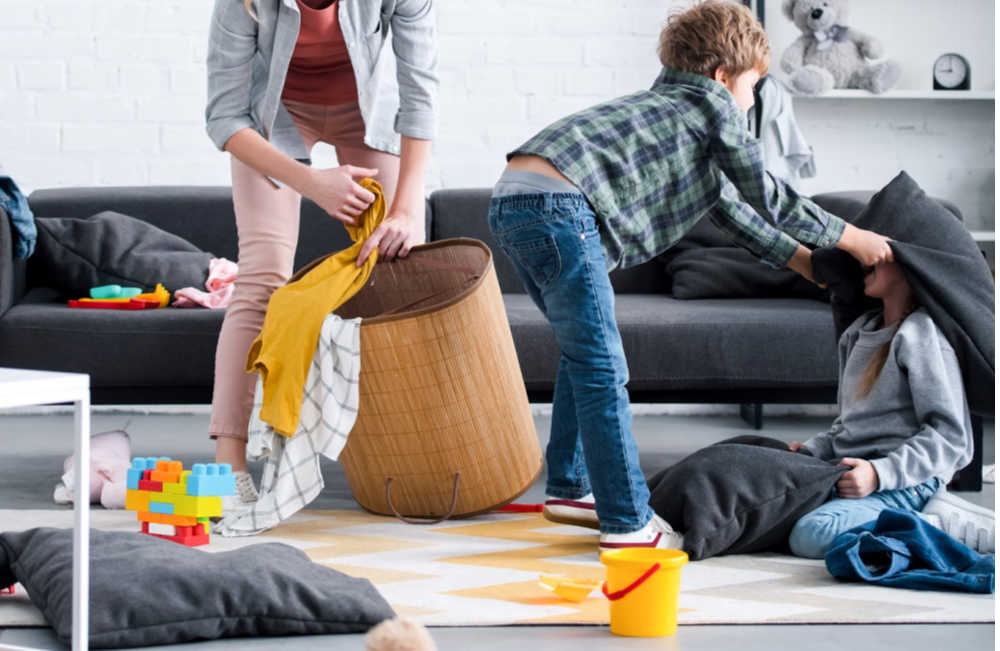 My two boys know exactly how to press my buttons. Or do they?
So often, we take our kid’s bad behavior personally when really it is their way of communicating with us. The other day, for example, I was desperate to do some deep cleaning. The house was a mess, and as the laundry piled up, I could feel myself becoming more and more overwhelmed. So, I made a batch of playdough, set up some loose parts play, and got to cleaning.
But my kids had other ideas. They wanted me. Despite my best efforts to create engaging activities to keep them busy for an hour or two, they insisted on being wherever I was. That also meant making a mess as I was trying to clean. It’s almost like they knew I was trying to accomplish something, and they were doing their best to thwart me. Yes, thwart, like some evil villain in my story.
So I yelled.
I shouted at them to go and play. I may even have slammed a cabinet. As I watched their eyes fill with tears, I began to feel guilty for my outburst, but I was still frustrated with their behavior. But were they really doing anything wrong? Were they intentionally trying to sabotage my cleaning efforts?
No, that was just the narrative I had created. They weren’t really trying to foil my cleaning plans or irritate me. They just wanted to be with me.
You see, we had had a rough week, and everyone was feeling disconnected and dysregulated. My kids weren’t misbehaving; they were searching for connection. External behavior is a reflection of internal dysregulation, and we need to see it as a form of communication.
Related reading: The crucial difference between positive and permissive parenting
My two boys know exactly how to press my buttons. Or do they?
So often, we take our kid’s bad behavior personally when really it is their way of communicating with us. The other day, for example, I was desperate to do some deep cleaning. The house was a mess, and as the laundry piled up, I could feel myself becoming more and more overwhelmed. So, I made a batch of playdough, set up some loose parts play, and got to cleaning.
But my kids had other ideas. They wanted me. Despite my best efforts to create engaging activities to keep them busy for an hour or two, they insisted on being wherever I was. That also meant making a mess as I was trying to clean. It’s almost like they knew I was trying to accomplish something, and they were doing their best to thwart me. Yes, thwart, like some evil villain in my story.
So I yelled.
I shouted at them to go and play. I may even have slammed a cabinet. As I watched their eyes fill with tears, I began to feel guilty for my outburst, but I was still frustrated with their behavior. But were they really doing anything wrong? Were they intentionally trying to sabotage my cleaning efforts?
No, that was just the narrative I had created. They weren’t really trying to foil my cleaning plans or irritate me. They just wanted to be with me.
You see, we had had a rough week, and everyone was feeling disconnected and dysregulated. My kids weren’t misbehaving; they were searching for connection. External behavior is a reflection of internal dysregulation, and we need to see it as a form of communication.
Related reading: The crucial difference between positive and permissive parenting
How To Stop Yelling at Your Kids – Helpful Tips
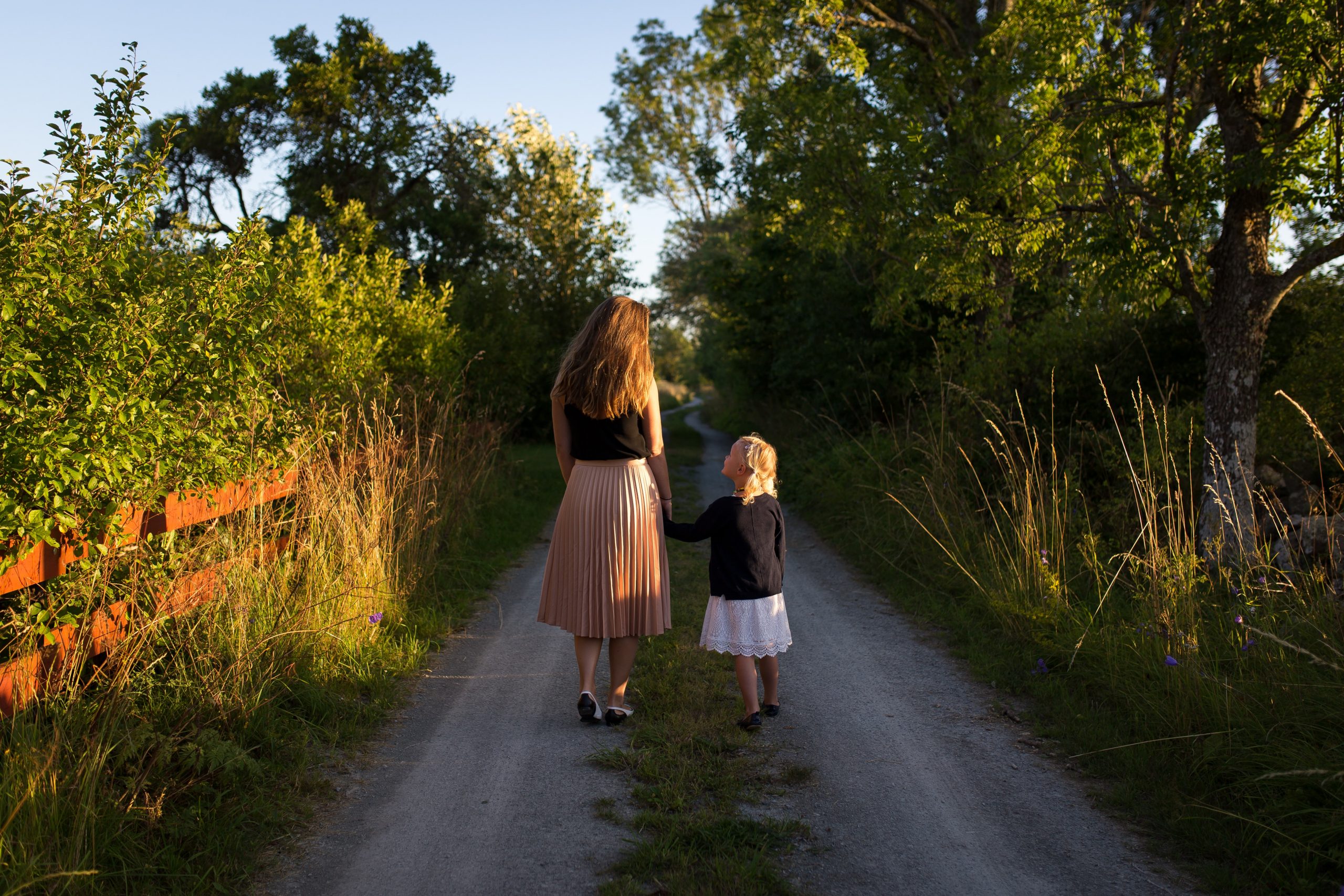 We yell at our kids because we are tired, overwhelmed, touched out, burnt out, and need help. As much as we try, we can’t keep our cool all the time. Sometimes, our children’s behavior is extremely triggering, and we react to it rather than respond to the emotions behind the behavior.
But harsh verbal discipline is harmful to our kids. We need to understand our child’s perspective in order to have the self-control and emotional regulation skills to stay calm. Sometimes, we need to give ourselves a time out.
We yell at our kids because we are tired, overwhelmed, touched out, burnt out, and need help. As much as we try, we can’t keep our cool all the time. Sometimes, our children’s behavior is extremely triggering, and we react to it rather than respond to the emotions behind the behavior.
But harsh verbal discipline is harmful to our kids. We need to understand our child’s perspective in order to have the self-control and emotional regulation skills to stay calm. Sometimes, we need to give ourselves a time out.
The Power of the Pause
Stepping away from a triggering situation before you have a meltdown can be a game-changer for your parent-child relationship. Yelling is not going to make your child listen and only shows them that you feel out of control which can be scary for them. Explain to your child how you are feeling, move away, and take a few deep breaths. When you talk about your feelings, you are taking responsibility for them but also teaching your child healthy emotional regulation. You can’t help your child deal with the feelings behind their behavior without first addressing your own emotions. Teaching your child emotional literacy is a critical part of child development and has positive long-term effects. When you are reactive and yelling at your child, you are participating in their dysregulation.Use “I” Statements
“I” statements are another great first step to yelling less. Instead of, “You are making me feel angry.” Try, “I am starting to feel angry, so I am going to go into the other room for a minute to calm down.” Using “I” statements is one thing that helps you reframe how you see your child’s behavior and also avoids the blame-shame game. Your child is not responsible for your emotions, and when you blame your feelings on their behavior, they internalize that criticism.Stay Positive
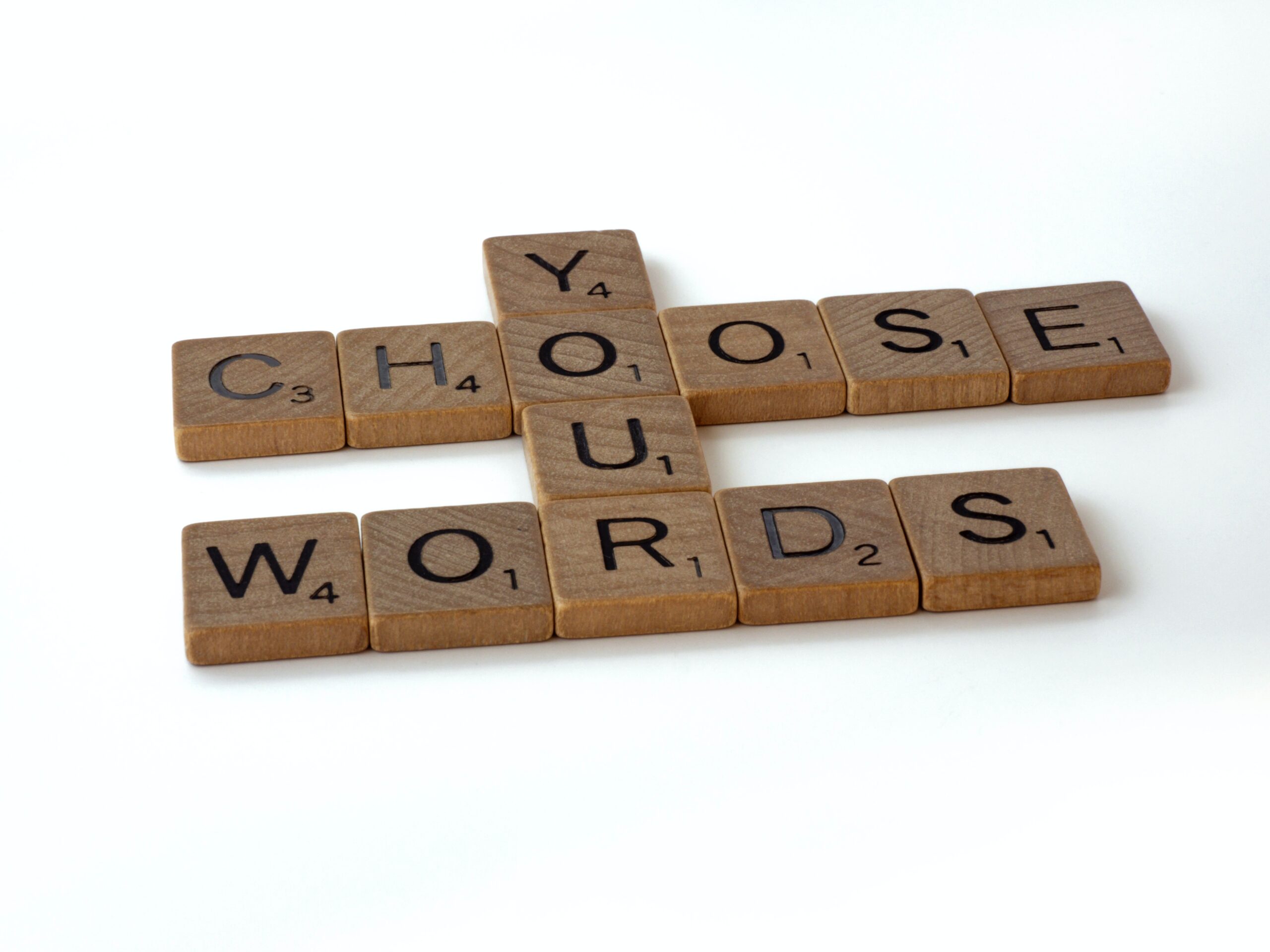 Positive language can make a huge difference when it comes to yelling. When you focus on good behavior, you encourage your child to do more of it. Positive reinforcement is a powerful parenting tool that can help you focus on all the things your child is doing right rather than on what they are doing wrong.
Be sure to make eye contact and get your child’s attention while you recognize and reinforce the behavior you want to see more of. Connection is one of the best ways to make your child feel seen, heard, and valued.
Positive language can make a huge difference when it comes to yelling. When you focus on good behavior, you encourage your child to do more of it. Positive reinforcement is a powerful parenting tool that can help you focus on all the things your child is doing right rather than on what they are doing wrong.
Be sure to make eye contact and get your child’s attention while you recognize and reinforce the behavior you want to see more of. Connection is one of the best ways to make your child feel seen, heard, and valued.
Clear Boundaries
Parents yell when they feel like their kids have violated a boundary and send them to a time-out. But do you have realistic expectations of your kids? Have you explained the boundary to all the family members and given them a good reason for setting it? Is a time out where they are isolated and emotional really the best way to approach “misbehavior”? Kids feel safe and secure when they know what is expected of them. When you have firm, fair, and consistent boundaries with logical consequences, your kids won’t keep testing your limits all the time. Respectful and loving boundaries help guide your kid’s behavior which means less yelling for you. Also remember that positive reinforcement goes a long way in helping make healthy boundaries a household habit.Conditional Language
Kids have a harder time following instructions when they are unclear. Try using the “when-then” approach. For example: “When you finish your homework, then you can have 30 minutes of screen time” “When you put your coat and shoes on, then we can go to the park” Conditional language helps guide your child’s behavior while establishing consequences. It gives them control because they know exactly what they need to do, which means less yelling and nagging from you.Other Helpful Tips for Calmer Communication
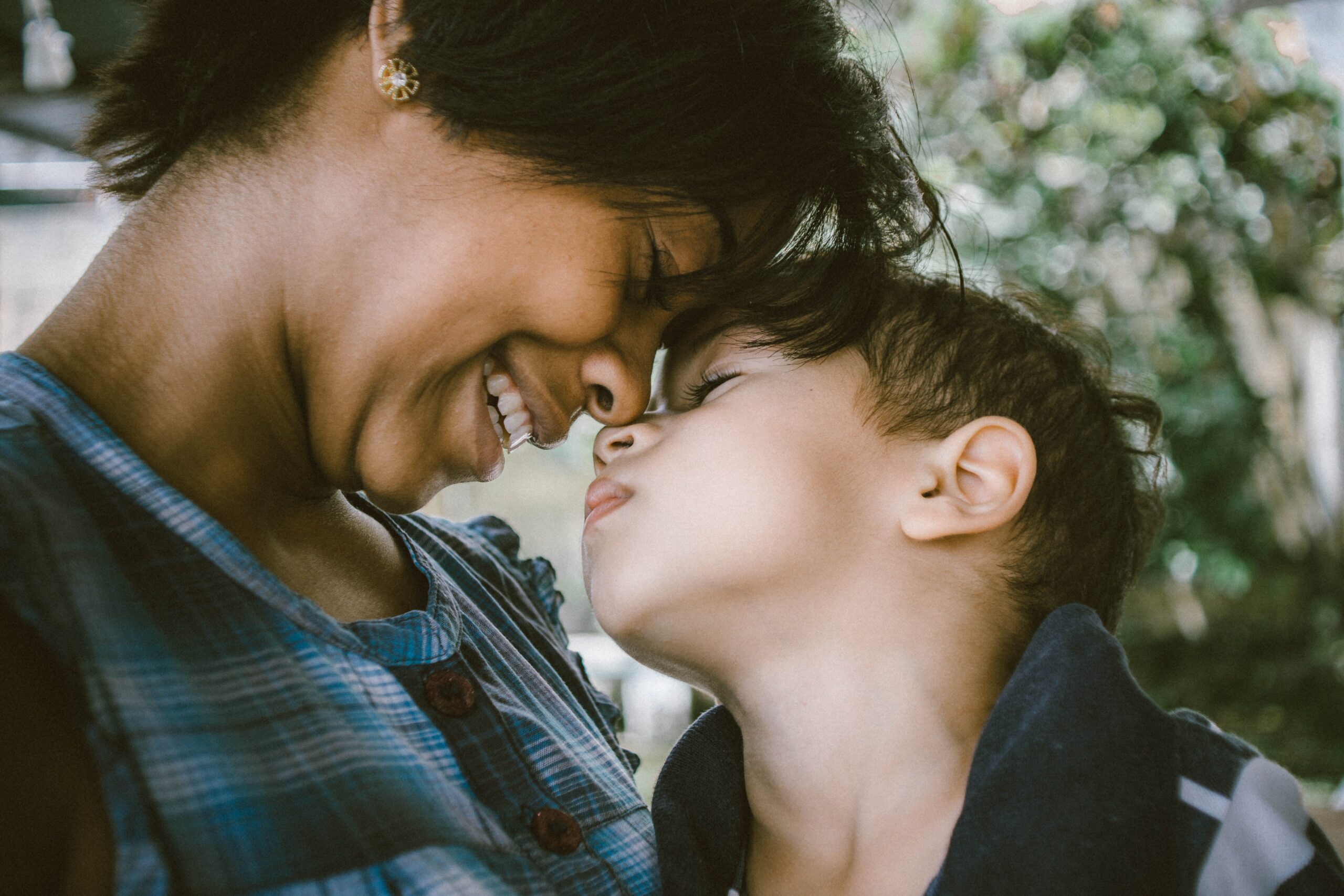
- Engage in preventative maintenance – regular self-care is needed to become a calmer parent.
- Make it a family goal to stop yelling – chances are the kids raise their voices too. Getting everyone on board to communicate in a calmer, more respectful way can be encouraging and more motivating too.
- Use visual aids – Dr. Laura Markham recommends creating a calendar to cross off each day you haven’t yelled. Not only will it help you see your progress, but it can also help you get back on track. Dr. Daniel Seigel and Dr. Tina Payne Bryson recommend putting parenting quotes around the house and in the car to act as reminders.
- Remember that what looks like defiance often isn’t deliberate – when we change the way we evaluate our children’s behavior, it’s easier to stay calm in the heat of the moment. Ask yourself if your child is having a hard time, fearful, anxious, overwhelmed, or feeling disconnected from you.
- Take a deep breath before responding. Make your exhale longer than your inhale to calm yourself in the heat of the moment.
- Know your triggers. Some behaviors will make you feel more reactive than others. Identifying the actions that trigger you can help you be more responsive and aware.
Positive Parenting Takes Time
Guess what? Even parenting experts lose their cool occasionally. No one is perfect, especially an exhausted and overwhelmed parent having a hard day. But one reactive moment doesn’t make you a bad parent. Communicating calmly and respectfully doesn’t happen overnight. It takes time and intentionality. You have to put in the work to create healthy communication habits that set your child (and you) up for success. There is no quick fix to stop yelling. But there are imperfect moments tackled with love, empathy, and grace. You’ve got this. Like this post? Click on the image below to save it to Pinterest! -Thank you!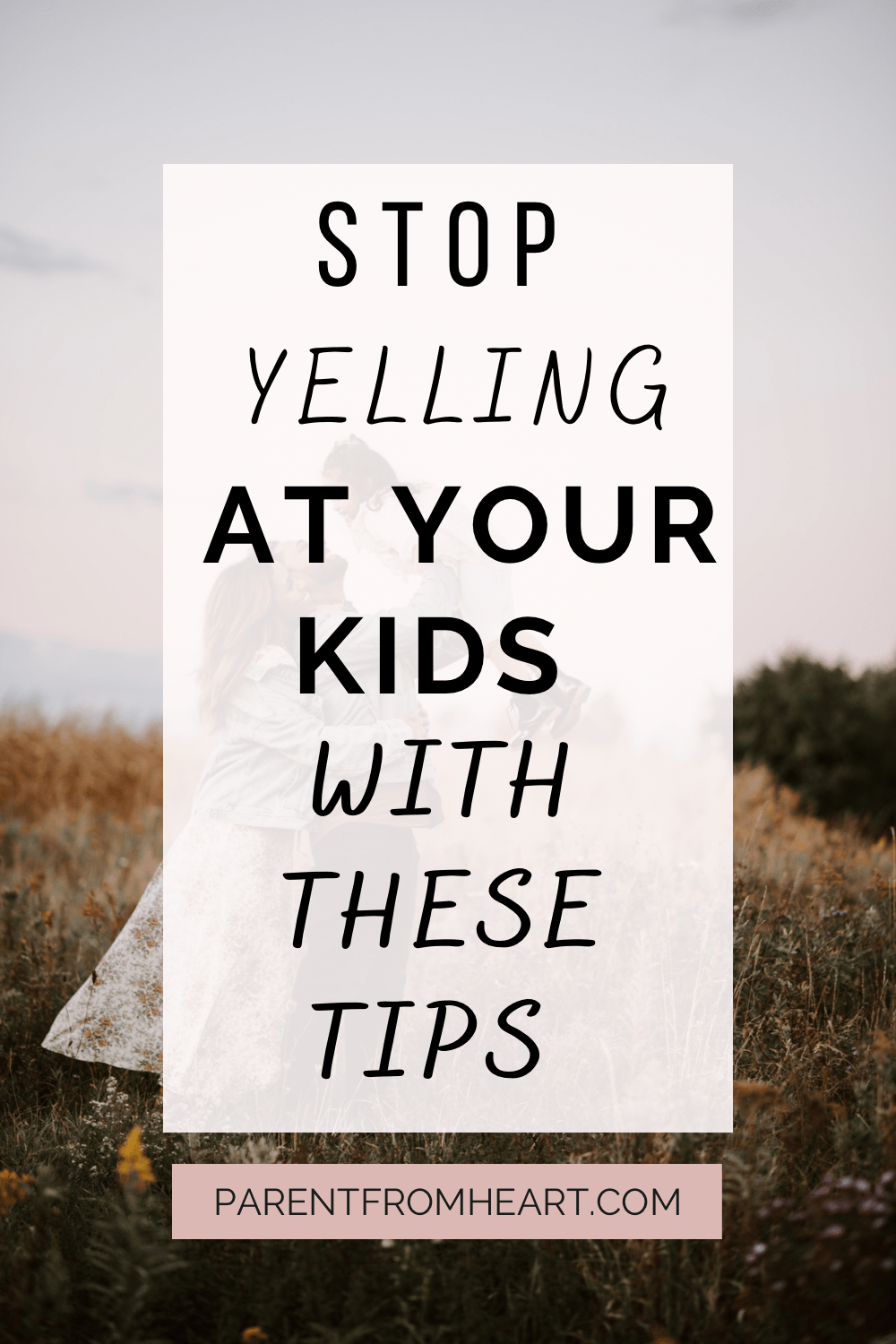







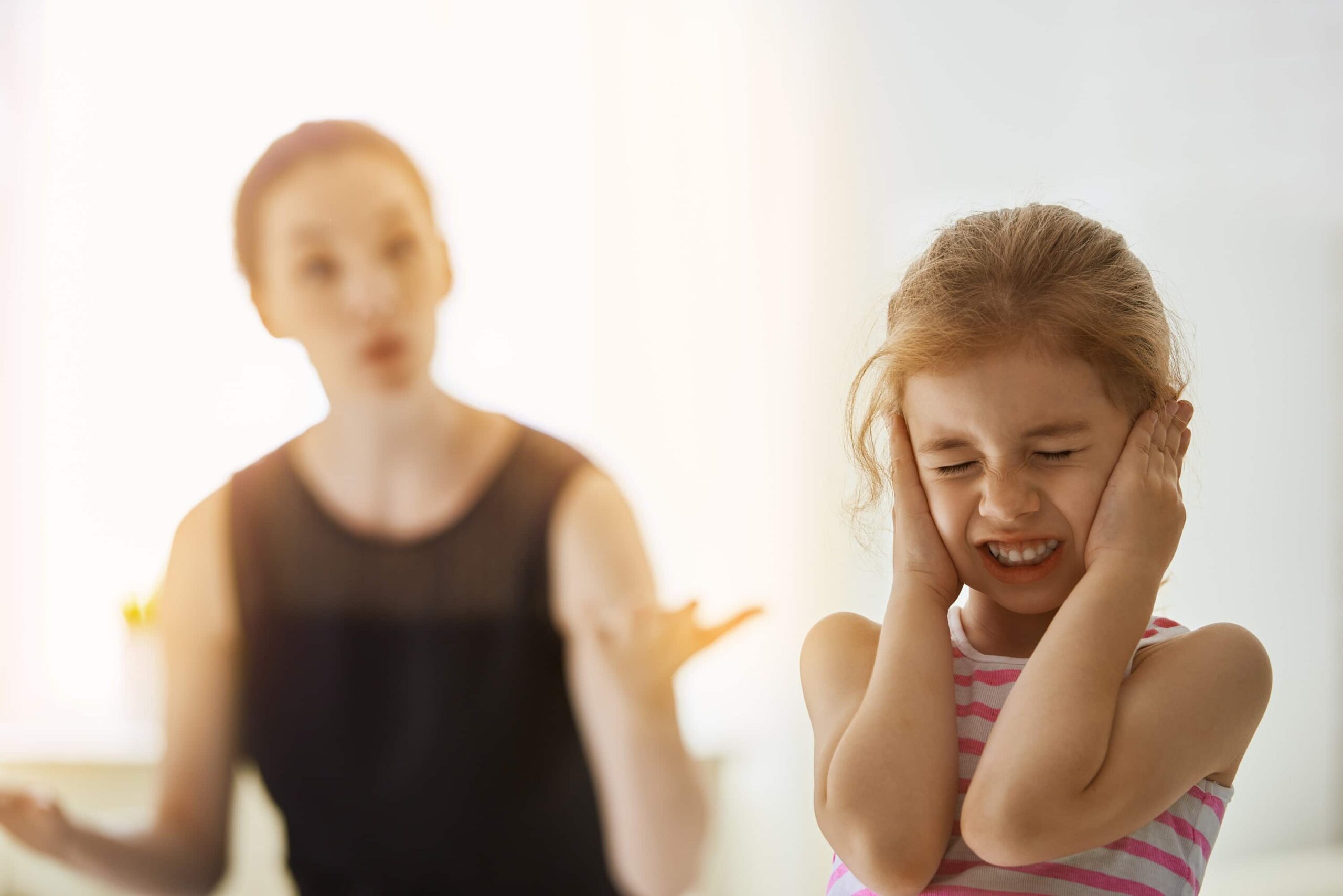
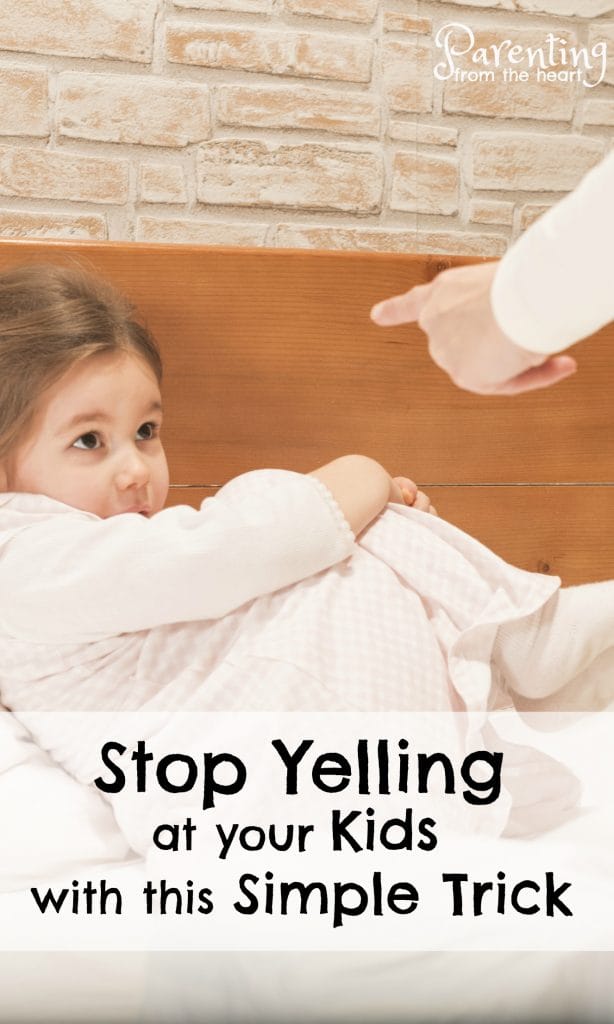
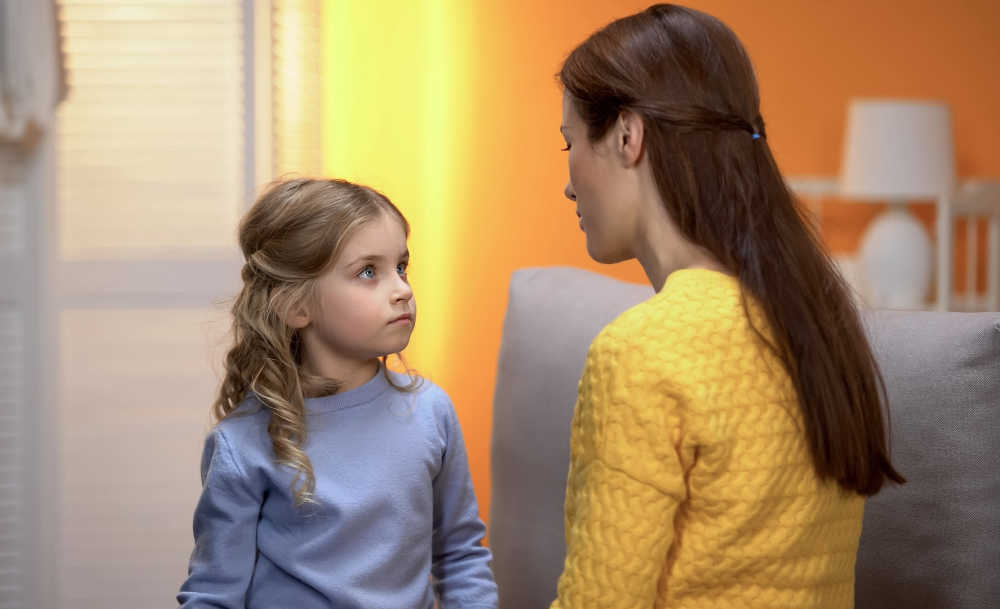
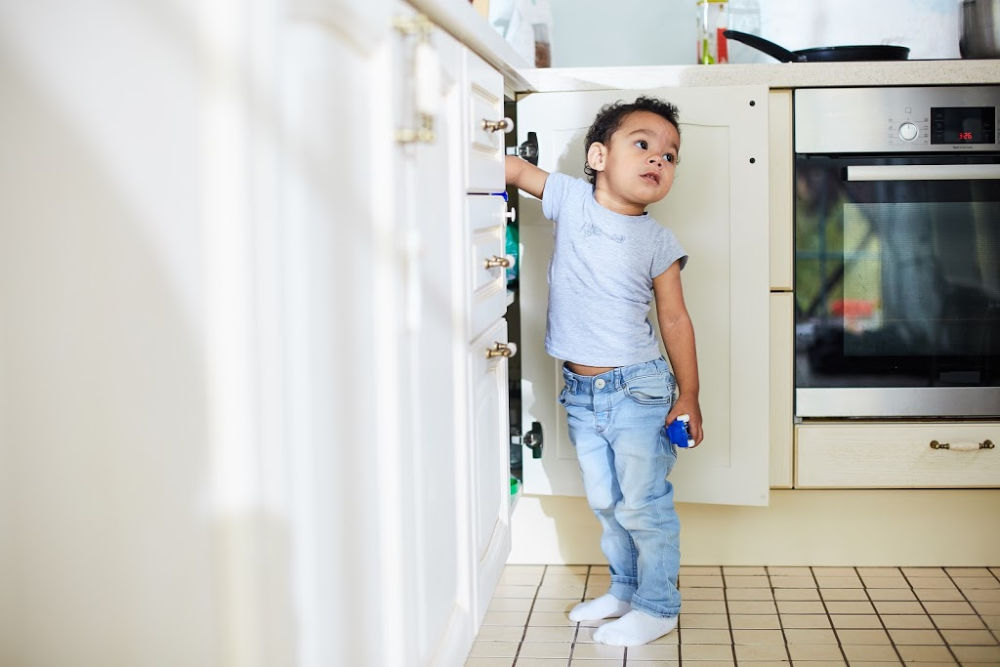
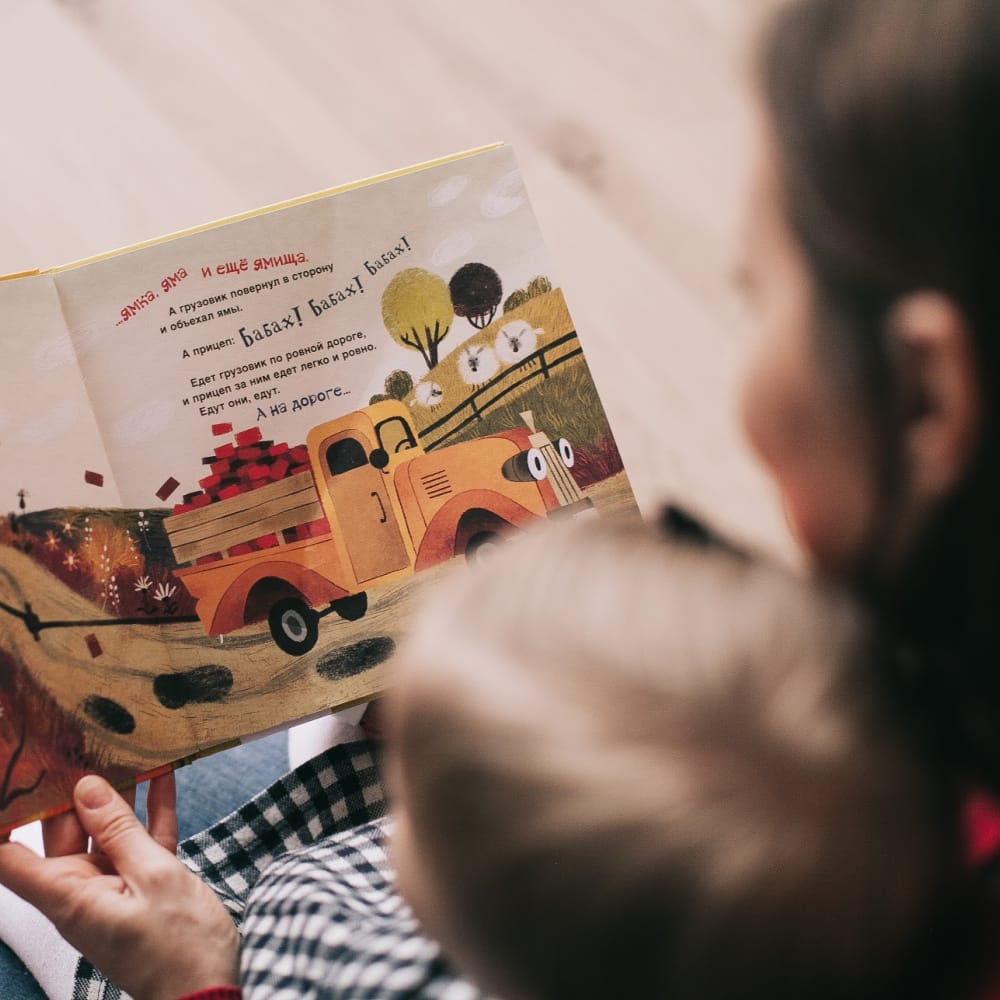
That is a fantastic strategy. I need to count to ten while I take a deep breath because I take a little longer to calm down, but modeling “I feel…” statements is brilliant!
I love this suggestion. I have a hard time with yelling. I also find it especially true when I’m tired or trying to get too many things done at once. I’m definitely going to try this technique. I love how you can tell it’s working by your daughter doing it too.
The tip to apologize to two kids under 5 is so ridiculous! You are helping raise more “snowflakes” more needy, nasty, unrespectful little spoiled brats. Wake up America! Ok to give a little swat on their asses! Not the face – never the face or the body- kids don’t understand WHaT makes you boil! What makes you angry! They are kids : They are not your parents, not your therapists! You should be the parent!
I approved this comment because I would like to address what you wrote. One of the most effective, if not the ways to develop a child’s morality is through modelling. Research on neurobiology shows that where attention goes neurons fire and create networks in the brain around that behaviour. Based on this, a parent who shows contrition for yelling is a powerful lesson on how the child should respond when he/she gets overwhelmed, overly emotional, or acts out of anger. In turn, spanking models the use of force and physical punishment.
Parenting that tends to produce needy, spoiled, disrespectful children is permissive parenting. Meaning, the child basically runs the show. The parent is kind, warm, and has low standards. Instead, this article is focused on parenting where the parent is in charge but they use reason and logical consequences instead of force as a means to raise children who are more respectful, show higher moral reasoning and are more resilient.
Self care is a huge part of how good or bad I respond to conflict in my house and shouldn’t be an excuse for yelling like it is a lot of times. Thanks for sharing your struggle and how you’re learning. I am definitely guilty of this.
I think yelling usually comes when you’re at the end of your rope. The idea of taking a moment for self-care is a good one.
What a great way to teach your kids healthy emotional expression. I often tell my counseling clients that “Emotions aren’t bad, but it’s what you do with your emotion that can get you into trouble.” By taking a deep breath and expressing how you feel calmly, you are showing them that there are helpful ways to handle big emotions. Way to go momma!
self care is so important. When I have gone days and days without time for myself, those are the days things are usually rough on my house and anything my daughter does is going to irk me
I love ur honesty and the fact that, long are the days as full time mums with so much on our heads the never ending “to-dos” list whilst fighting our best to nurse, parent, guide and love our children to the fullest we could. We mums really streach so hard to keep things not only going well but to almost near perfect. Not to scream out of our frustration when children are against our ways? Hard! Srysly very hard!
We hv all come this far frm trying to conceive to parent our children till they r ready to take off their dreams, your tips on sending cues before be screams are absolutely helpful and positive to help our children to feel safe and love at home xo
Thank you so much for sharing your story I’m so guilty of the same and it makes me feel so bad inside so I’m definitely going to try your strategy and I also like how you said that your daughter also follows your lead now when she’s upset with her brother because I tend to hear my daughter yell at her older brother at times and I say to myself she has got to stop this yelling but apparently she got it from me so now I need her to learn the strategy with me thank you so much dear for sharing God bless❣️
This parenting gig isn’t easy. The important thing is to forgive yourself for when you fall short and try and do better. Thank you so much for your comment. God bless you too.
I’m going be honest. I clicked on this thinking it was going to be another piece of parenting advice that I would role my eyes at and move on, but I was wrong. It’s simple, it’s logical, and I can’t wait to try it. I’ve been feeling like a ball of anger for the last year and what I’m doing now isn’t effective. Thank you
Thank you so much for your comment, Sam. This technique isn’t a fix-all. I find I have to remind myself to do it because my knee jerk reaciton is to yell too much. But, it has helped us immensely.
Thank you for helpful suggestions, I learnt to not to yell by remembering
Not to forget myself, because when you yell your hurt physically
and mentally,,and my throat hurts ,not to raise my voice unless the house
Is on fire .
That’s wonderful. Thank you for sharing your experience and perspective.
I really appreciate how you used a personal story and admitted to the fact that sometimes anger gets the better of you. I feel like I lose my cool multiple times a day. I think this is a great way to find release by expression without the regret. Even though my child is only 7 months old (and another one on the way) I’m going to start doing this now. Thank you 🙂
Thank you so much for your comment. As you can tell, I can relate to struggling to stay calm. I can let my emotions get the best of me. I keep coming back to this strategy, self-care and admitting my faults when I make mistakes. I too had two under two. It isn’t easy! But it is a lot of fun… sleep deprived fun that is.
Oh this was just amazing thank you for sharing this! Because I’ve done too as a mom of two and it doesn’t feel so great to yell at your kids! I will deff try this i really appreciate when other moms share their experiences with other moms! It’s makes me feel like I am not alone or the only one doing things wrong sometimes! Thank you
omg I love this…this is the first time I actually agree and love an article…I actually feel like everything you said and everyone said in the comments is exactly what I’m going through and I’m not the only one that goes through this…I’m def going to try this…I love my kids so much but sometimes I lose it and then I regret it because I don’t want my kids to pick up the monster side of me and I don’t mean to yell sometimes but I just lose it and this technique is awesome…
I am definitely going to try this. I’m already one to tell my kids when i am feeling frustrated with them and why, but I still struggle with yelling.
My question for you has more to do with how you recognized the whole day had been leading up to that because your kids wanted your attention. I struggle with this because I work from home. I spend time with my kids all day on most days during the summer, but I need to work as well. I’ve tried to take a couple hours two days a week to work- I get them occupied and let them know I need to work and the less they interrupt me the faster I will be done and then we can … but it still hasn’t really worked. I get interrupted constantly and they get frustrated and the whole day spirals. Do you have any ideas for the times when you actually have to get things done and cannot give them your undivided attention? (Side note- I’m not talking toddlers or babies. My kids are 6.5 and almost 9.) They are going back to school next week so it won’t be an issue for a while… but it was rough this summer and I would like to have a decent strategy up my sleeve for future school vacations.
Thanks!
I can’t begin to express how much I relate. I work from home and this morning was a constant battle of having them interrupt and me finding myself frustrated. When it comes to giving them attention (feelings of connectedness to improve listening), psychologist Dr. Laura Markham recommends offering each child ten minutes of uninterrupted time with each of your children doing whatever they’d like. So in yours and my situation, this might be before we sit down to work explaining to the kids that we have to work but before that we want to give them a minimum of ten minutes of time doing whatever they’d like (examples could be playing Paw Patrol, painting, colouring, throwing a ball outside, playing a card or board game or doing a puzzle). You can either complete the task with them or set the timer for a brief period. This small amount of time makes them feel validated and important even though it’s so brief. Obviously, there are other ways to connect through the day but this small gesture can improve their listening greatly.
When it comes time to sit down and work, explain to them how long you’re allocating for work. For instance, I need to work on this project for one hour. When the timer goes off, I can come back and play with you again. Respect the timer so they trust you’ll be back to pay attention to them when you said. Have lunch, play, help them with what they need help with and then set the timer again.
It isn’t a perfect science but I find these two strategies can help a lot.
As a single mom who works from home with a special needs 11-year-old daughter that is homeschooled, it can be rough around here with deadlines looming! I ended up on this article today after a particularly nasty yelling episode.
I notice I tend to lose my cool towards the end of the week when I’m exhausted, but still have to get work done. I am not a naturally patient person to begin with so add the demands of work and a high-maintence child into the mix, and it’s a recipe for disaster. I think your strategy could work wonders in our household. Will definitely try it! Thank you and God bless.
I love the bit about what looks like defiance often isn’t deliberate. So true yet so many parents fail to recognize this. Even those of us that get it fail to recognize it in the moment.
A really good reminder that we’re not perfect and should acknowledge that with our children when we make mistakes. But I would go so far as to say that you should tell them, genuinely, “I’m sorry I yelled at you. That wasn’t very nice of me and it was a mistake. I will try to note do that again and to do better.” We have to be okay with telling our kids this or they will never be able to do it themselves. This is what I practice with my 4.5 year old and it works!
Thank you so much for sharing your experience and also for your kind words. I really appreciate it.